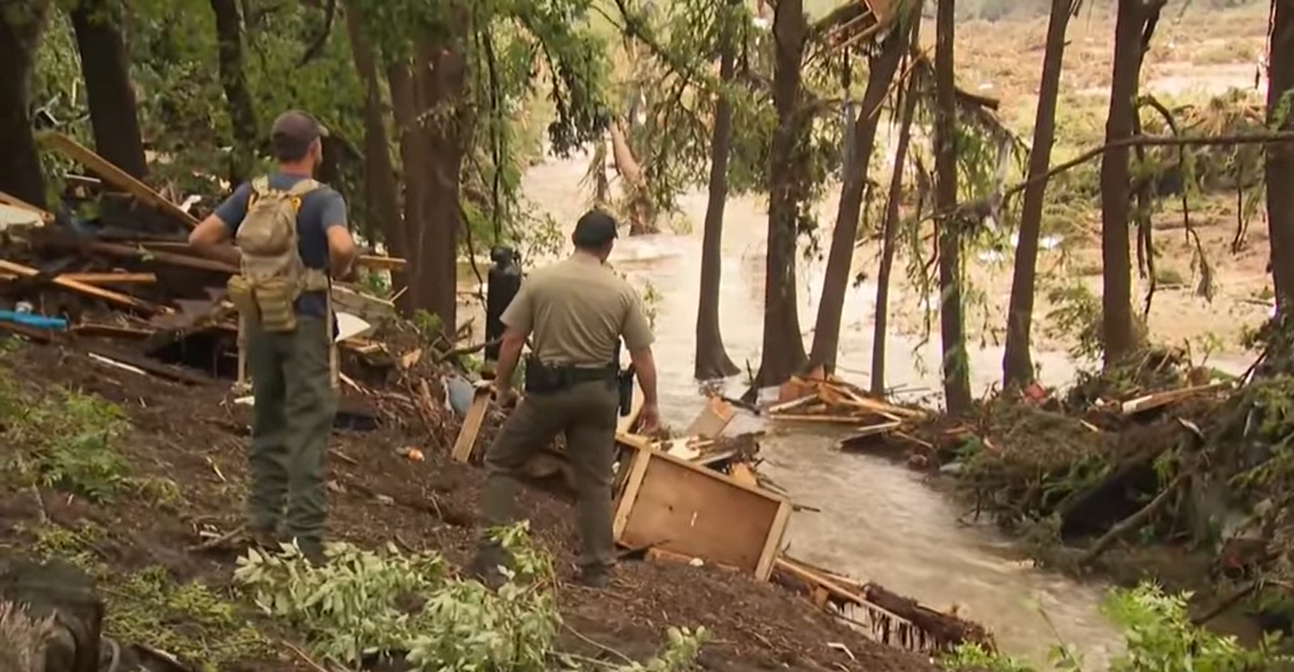UPDATE 8/4 10:20 PM: The DHS removed language explicitly blocking federal disaster relief funding to states allowing boycotts of Israel in its FY2025 standard terms and conditions document, but clarified on X that it could still deny funding on these grounds.
The Trump administration announced today that American states and cities boycotting Israeli companies will not receive natural disaster funding from the Federal Emergency Management Agency (FEMA).
To be eligible for $1.9 billion available in federal grants from FEMA for disaster preparation essentials, including emergency management salaries and rescue gear, U.S. states and cities must agree that they will not cut off “commercial relations specifically with Israeli companies.”
In essence, signing a loyalty oath to another country.
“DHS will enforce all anti-discrimination laws and policies, including as it relates to the BDS movement, which is expressly grounded in antisemitism,” a spokesperson for Secretary of Homeland Security Kristi Noem said.
Back in April, the Department of Homeland Security (DHS), which oversees FEMA, announced that states and cities receiving its funding cannot boycott Israel.
Today, 34 states have laws or policies against Boycott, Divestment, and Sanctions (BDS) already in place, making today’s development a largely symbolic one.
There are currently no states that actively “boycott” Israel, though a handful of cities have moved toward passing laws cutting off business with Israel or companies that do business with Israel over humanitarian concerns. For example, Portland, Maine voted in September 2024 to divest from companies doing business with Israel, citing the humanitarian crisis Israel has caused in the Gaza Strip. And the city of New Orleans passed, but rescinded soon after, similar legislation back in January 2018, years before the current war.
Observers contend today’s move by the White House, which makes critical disaster relief (paid for by American taxpayers) contingent on Israel support, showcases the extent to which the Trump administration backs Israel amid its longstanding war on the Gaza Strip, which has killed more than 60,000 people and created famine-like conditions there.
"Tying disaster assistance to a state or city's stance on Israel demonstrates that the Trump administration has abandoned ‘America First’ in favor of ‘Israel First,’” Quincy Institute Middle East Program Research Fellow Annelle Sheline told RS. “Yet it also highlights the desperation of the pro-Israel lobby: if American communities have to be forced to support Israel, such support is not viable for the long-term."
Josh Paul, the co-founder and Director of Washington-based think tank A New Policy, similarly told RS the move places Israel over Americans' well-being.
“When the next flood, or fire, or earthquake hits, the U.S. government will have to explain to Americans whose homes and lives have been devastated by disaster that the funding was not available to avert the catastrophe because the Trump Administration placed Israel's economic interests above the well-being of American citizens,” Paul said.
The move to block federal disaster preparation funding from states and cities divesting from Israel comes amid growing international outrage over the worsening humanitarian crisis in the Gaza Strip, and recently announced intentions by Western countries, including the UK, France and Canada, to recognize the state of Palestine.
Trump said last week at a meeting with British Prime Minister Keir Starmer that he did not mind if Starmer supported Palestinian statehood, but that he would not take a stance on that issue himself. However, Trump did say Canada moving to recognize Palestinian statehood could make a trade agreement between the two countries “very hard” to reach Thursday.















